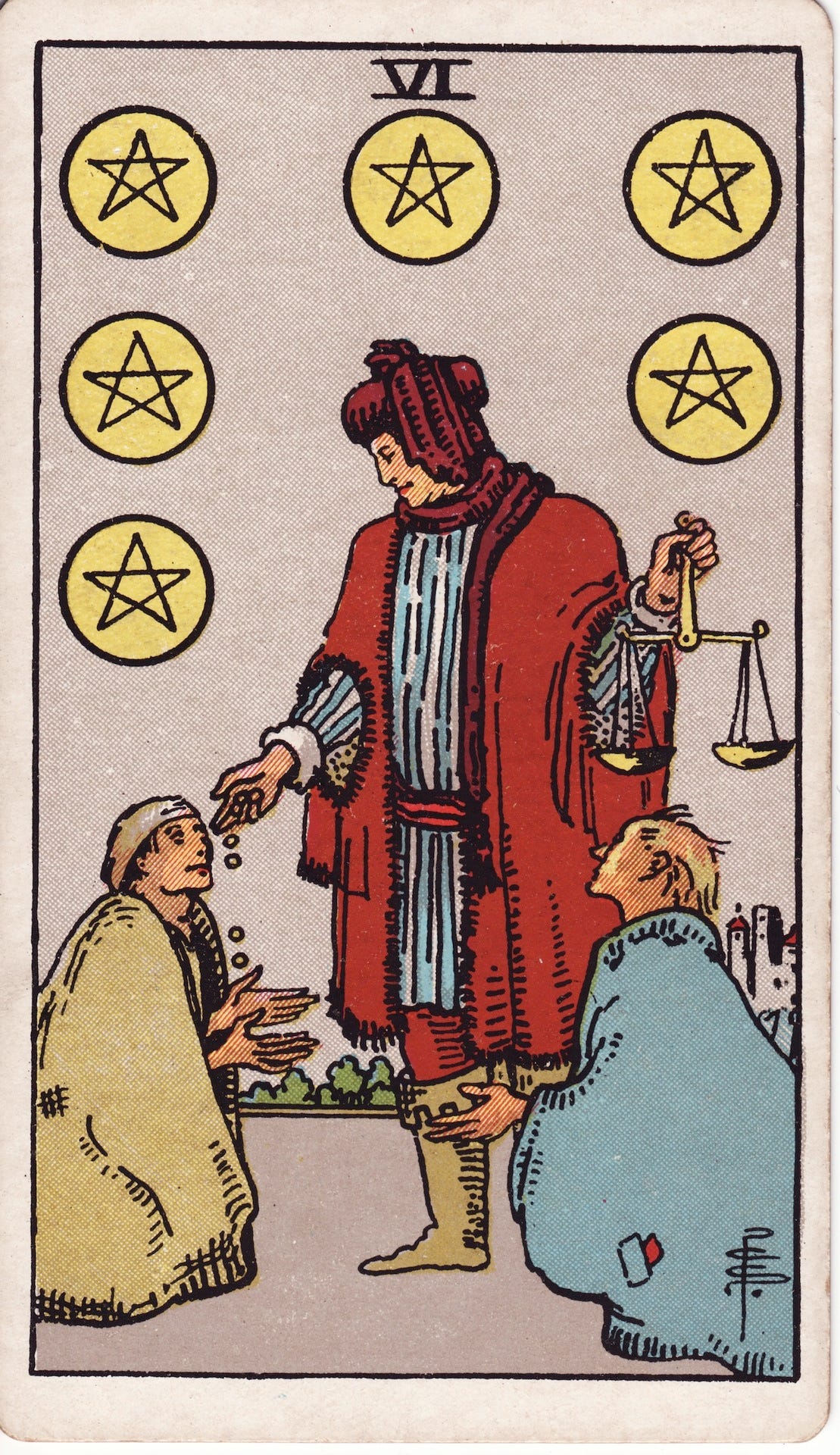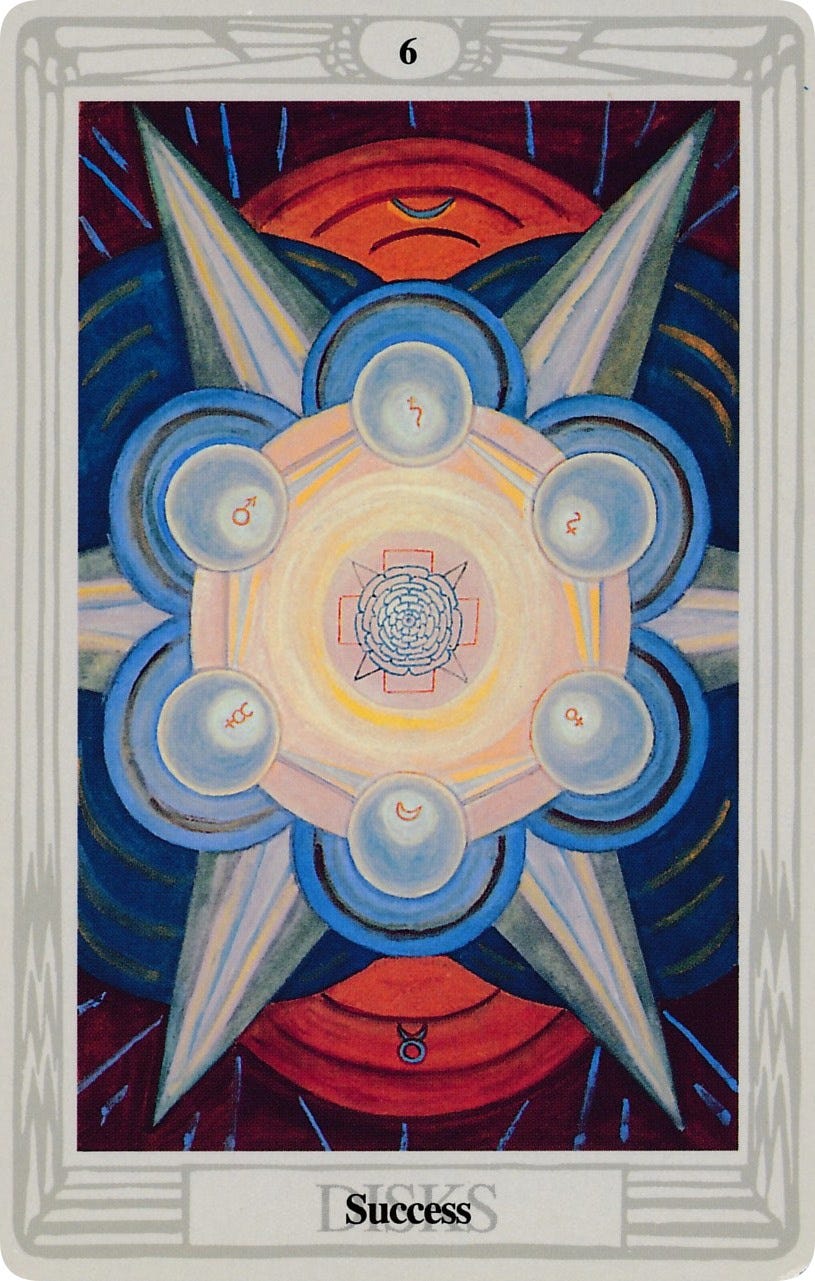What Is Success?
The Six of Pentacles and Taurus II
Taurus II, the fifth decan, is represented by the Six of Pentacles. Though Smith’s depiction in The Waite Smith deck is much more representational than Harris’ in the Thoth deck, they both speak to earthly transactions, what they mean between people, and how they can point either to a higher good or a potential downfall.
I’m a merchant by trade, and have been for over thirty years. I often say I’ve bought and sold almost every product available except for cars. I’ve been in the book trade for over twenty years now, and book merchants (except for Amazon, who doesn’t count) have a pretty good reputation. Books are likeable, lovable really, and we aren’t seen as greedy because there aren’t too many people who get really rich from buying and selling books. Most booksellers just love sharing books.
I see the man in the Six of Pentacles as a merchant, as someone who earns money and gives back to the poor with an even hand. Why else would he be holding a balance as he gives gold coins to the beggars? But the balance also represents the possibility of imbalance, the inevitability that some will have more, will be what we call successful, and others will have less, and with that comes the anxiety of scarcity in the Five of Pentacles we talked about last week.
Now Crowley calls it right out in the Thoth deck—the Six of Discs is SUCCESS. But as Austin Coppock says in his commentary about this decan, '“the altrusim pictured in the Six of Pentacles is a cosmic necessity. When the rich do not give to the poor, society breaks down. The greatest alms are not coins, though. It is the knowledge of how all success is achieved—passion and discipline merged in rhythmic union. All great works are brought to completion through its observance.” (p.73) From this I get the sense that Coppock sees success as a process/product everyone has the opportunity to achieve if approached correctly. Unfortunately I think this is short sighted in not taking into account basic inequalities which are driven by race, class, social position etc. People, at least in this society, don’t all start on equal footing, not even close.
And what success means, even in the earthly realm of the pentacle, can mean very different things to different people. I listened to an NPR story this morning about a school district in Missouri who has been buying food from organic farmers for their students’ lunches through USDA funding for a few years. Until last week. The program was cut, which hurts the small farmers as much as the kids they were feeding. This was a great example of real success without greed for profit—sustainable, balanced, symbiotic. Completely unlike a certain airplane and its new owner also in the news today.
For me, success has always felt like having enough to share. To be able to give to others is the gift itself. And while I don’t identify with our figure above, holding the balance in one hand and the coins in the other—he’s a little too fancy for me. I do identify with the sentiment: trying to balance out all the unfairness in the world with one simple action at a time.
There is a young unhoused man who lives in the neighborhood of one of my two stores here in Seattle. He comes around a couple of times a week, and asks anyone on the street he sees to buy him a book off our bargain carts, usually only $1. It never takes more than one or two people before he comes in with them to buy his book. I’ve given him plenty of books over the years but I can see it makes the passerby happy to provide one small and kind gesture.
How do you define success in this earthly plane? How many coins are enough?



